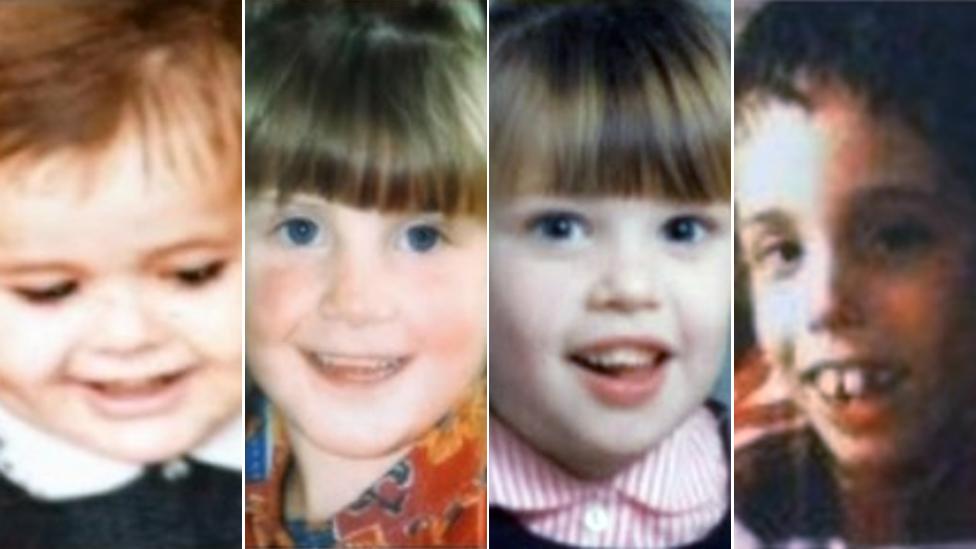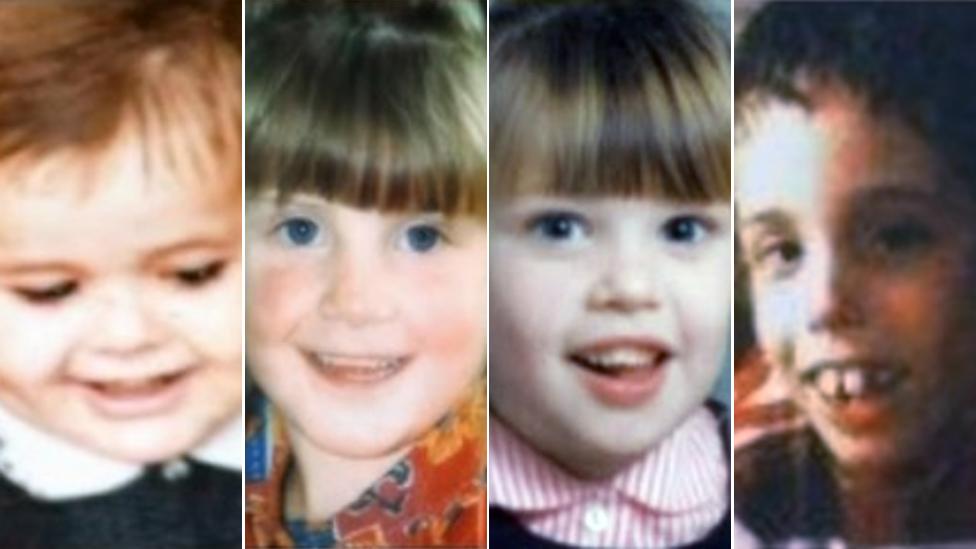PSNI to examine report into Hyponatraemia deaths
- Published

Adam Strain, Raychel Ferguson, Claire Roberts and Conor Mitchell. Lucy Crawford's family chose not to release a photograph
A dedicated PSNI team is being established to examine a report on Hyponatraemia-related deaths.
In January, an inquiry into the deaths of five children in Northern Ireland found that four of them were avoidable.
Hyponatraemia is a medical condition that occurs when there is a shortage of sodium in the bloodstream.
The damning report was heavily critical, external of the "self-regulating and unmonitored" health service.
On Friday, the senior police officer who will lead the new team, Det Supt Richard Campbell, said the PSNI is in the process of gathering together "a team of specialist detectives who will focus on taking forward police enquiries following the publication of the inquiry".
He added: "We have been in contact with the families and their representatives and will seek to meet with them over the coming days and weeks as our work progresses."
'Truth dragged out'
In the report, Mr Justice O'Hara was scathing of how the families at the centre of the inquiry were treated in the aftermath of the deaths of the children.
He said that "doctors and managers cannot be relied on to do the right thing at the right time" and that they had to put the public interest before their own reputation.
He also said that some witnesses to the inquiry "had to have the truth dragged out of them".
The report made 96 recommendations, including the establishment of a duty of candour on medical professionals "to tell patients and their families about major failures in care and to give a full and honest explanation".
Earlier on Friday, the Department of Health said "concrete steps" are being taken in response to the inquiry and that it will also establish a team to take forward work on its recommendations.
Key priorities
It is intended that the team will meet with the families involved.
The department said detailed work had already been undertaken regarding the recommendation that an independent medical examiner service should be established.
It added that the establishment of a "legal duty of candour" would be a key priority, but that ultimately, "ministerial approval and legislation will be required to deliver a permanent solution for both".
"Significant work will be carried out to scope these and other recommendations and to draft options for implementation."
Permanent secretary of the department of health, Richard Pengelly, said: "We want to closely involve the families in every stage of the process and to assure them on the actions being taken and the priority attached to that work."
Marie Ferguson, whose daughter, Raychel was one of the children at the centre of the inquiry told BBC Radio Foyle that the families would accept "nothing less" than all 96 recommendations being put in place.
"We've got the truth now from the report, the next thing is accountability," she said.
- Published8 May 2018

- Published31 January 2018
